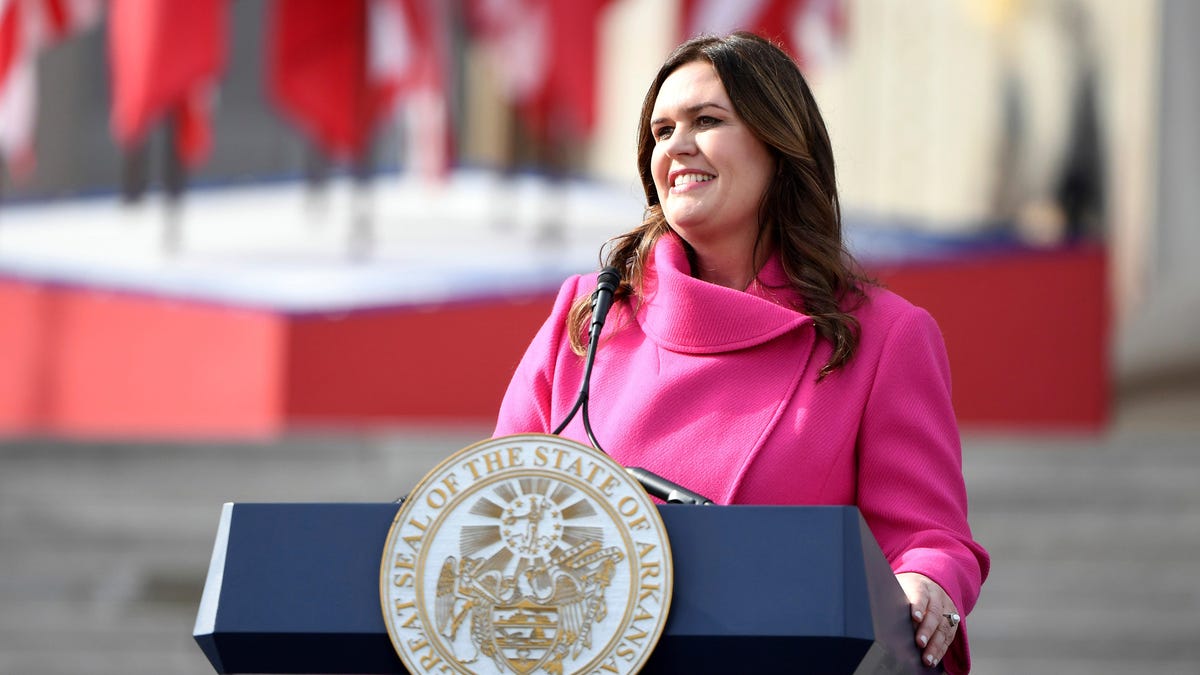
This week, Arkansas Governor Sarah Sanders signed into law a bill that requires parents or guardians to grant permission for their child to have a social media account. Last month, Utah passed a similar parental consent law that goes as far as requiring tech companies to give parents the passwords to their children’s accounts so they can review their posts and private messages.
Copycat legislation has now been introduced in other states including Iowa and Louisiana.
Advertisement
As youth activists who have grown up with Instagram accounts since middle school, we know both the benefits and the harms of social media platforms – we live them every day.
We’ve seen the negative effects of social media first hand as our generation grapples with addiction and body image issues tied to social media. However, as young people, we also recognize that social media has served as a safe haven for us and millions of other young people to explore our identities and discover who we are without the judgment of adults in our lives.
Advertisement
But let’s be very clear – the Utah and Arkansas laws aren’t about tech accountability or children’s safety; they absolve Meta, Google, TikTok, Snap, and other tech giants of responsibility to create products that are safe for children and instead puts the onus on parents to vigilantly monitor kids’ activity online.
The perversions of unregulated social media aren’t kids’ fault – or the fault of our parents. The exploitative parts of the internet that we want to do away with – the parts that collect our data for companies’ profit and feed us addictive content that keeps us glued to our phones for hours past our bedtimes or makes us feel self-conscious about our bodies — are a direct product of Big Tech’s trillion dollar business model.
Advertisement
While we appreciate politicians’ increasing focus on the harms young people face online, Utah, Arkansas, and the other states are letting Big Tech off the hook for building products that exploit and addict young people for profit by design. Big Tech doesn’t deserve a free pass on this. They should not be allowed to shirk all responsibility.
We need to establish standards that make platforms safer, not keep us off of them. We can’t expect to solve these problems by ignoring what is causing them – Big Tech – and we can’t create truly effective policy without centering the groups most impacted by that policy – us.
Advertisement
The right approach is to design platforms with young people in mind, and that’s why we support the Age Appropriate Design Code (AADC), which has already passed into law in California and nations like the United Kingdom, Ireland, Switzerland, and the Netherlands.
The AADC puts the responsibility for the tech-induced mental health crisis squarely where it should be – on the tech companies – rather than the kids and parents who are living with the consequences of the tech companies’ misdeeds.
Advertisement
The law is already making a difference. In the UK, TikTok has turned off strangers’ ability to message kids, Google turned on safe search by default, and YouTube disabled autoplay by default for users under the age of 18.
All young people deserve these protections – not just in the places where it’s already law – which is why state by state, we are fighting to pass the AADC to provide fair and consistent rules for the protection of kids online.
Advertisement
Lawmakers need to pivot from overly simplistic proposals like Utah and Arkansas’ parental consent laws that do the opposite of what’s intended and toward solutions that force Big Tech to design platforms for us.
Emma Lembke and Zamaan Qureshi are co-founders of Design It For Us, a youth-led organization advocating for safer social media and online platforms for kids, teens, and young adults.
Services Marketplace – Listings, Bookings & Reviews